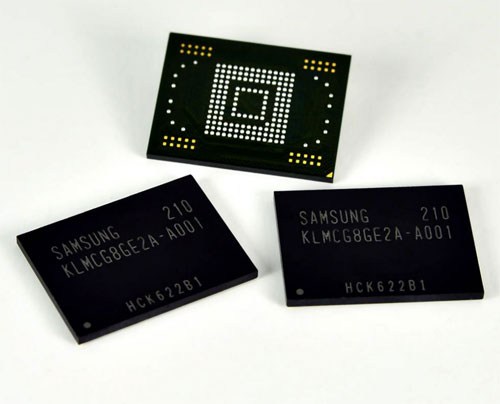
Samsung’s internal firewall between divisions is the only thing standing in its way between severing ties with Apple over its trial loss, according to Reuters. The lucrative partnership, in which Apple buys billions of dollars worth of internal components such as NAND memory, processors, displays and I/O chips, is unlikely to dissolve anytime soon, as Samsung has made it apparent that the divisions in no way represent a conflict of interest for the company.
According to a lead counsel for Samsung, his company’s components make up 26% of the iPhone’s internal hardware. An emergency meeting in Seoul on Sunday between high-level members of Samsung did not include the head of the manufacturing department, sending a clear message that the Korean giant in no way wants to sacrifice its important business relationship with Apple in light of the recent litigation and attempted injunction.
It’s unlikely that Apple wants to rock the boat too hard in this regard, either. While it would be possible to build products such as the iPad, iPhone and MacBook line without Samsung, it’s an issue of volume and vertical scaling that few other companies could match. While companies like LG and Sharp compete with Samsung over display contracts, no one company can compete with the Galaxy creator for sheer component variation.
This doesn’t mean that Apple hasn’t attempted to ween itself off Samsung for a while now. Since the two companies locked heads two years ago over claims of trade dress and patent infringement, Apple has widened the berth of its part sourcing, opening up avenues for LG, Toshiba and Hynix to steal business from Samsung.
Apple is attempting to get eight devices banned in the U.S. in the wake of the its trial win. Android smartphones such as the Galaxy S 4G and Galaxy S II Skyrocket are variants of Samsung handsets sold in Canada under different names; other companies such as HTC and LG are likely going to be very careful to stay within the bounds of U.S. patent law going forward, or risk getting sued themselves.
MobileSyrup may earn a commission from purchases made via our links, which helps fund the journalism we provide free on our website. These links do not influence our editorial content. Support us here.


